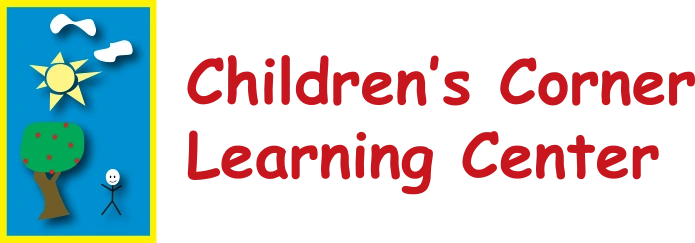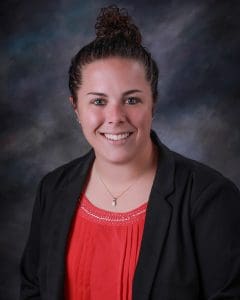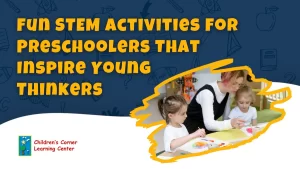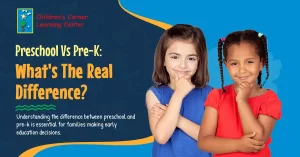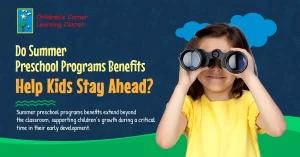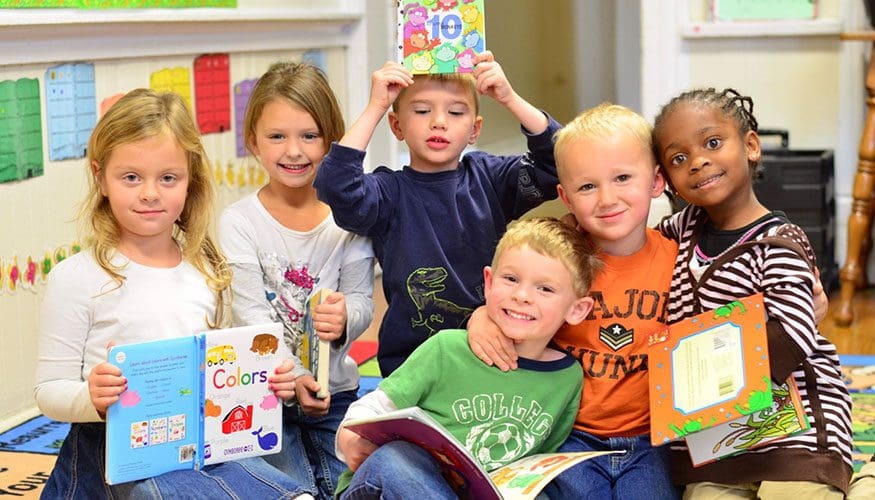Understanding and celebrating childhood milestones is essential for supporting child development. As early childhood educators, we uniquely recognize major physical, cognitive, social-emotional, and communication milestones and celebrate them appropriately. This fosters healthy child development and shows children we value their progress.
In this comprehensive blog, we delve deeper into major milestones for infants, toddlers, and preschoolers aged 0-5 years. You’ll find lists of specific skills children gain and numerous creative ideas for recognizing milestones and planning celebrations in your home or classroom. We will also share guidelines on developmental timelines and indicators of possible delays.
This blog aims to help parents, teachers, and caregivers track milestones and identify areas where a child may need extra support. We’ll cover how to partner with families to provide encouragement and resources. You’ll find tips for displaying children’s achievements and sample milestone checklists by age. Let’s nurture children’s growth mindset on their exciting learning journey through their early years.
Benefits of Recognizing & Celebrating Child Development Milestones
Celebrating childhood milestones has many benefits for young children:
- Builds their confidence through encouragement and praise.
- Supports the parent-educator partnership through sharing documentation of learning and development.
- Fosters language, memory, executive function, and reflection skills by revisiting milestones.
- Motivates children through positive reinforcement of desired behaviors.
- Provides assessment data to monitor progress and inform instruction and intervention needs.
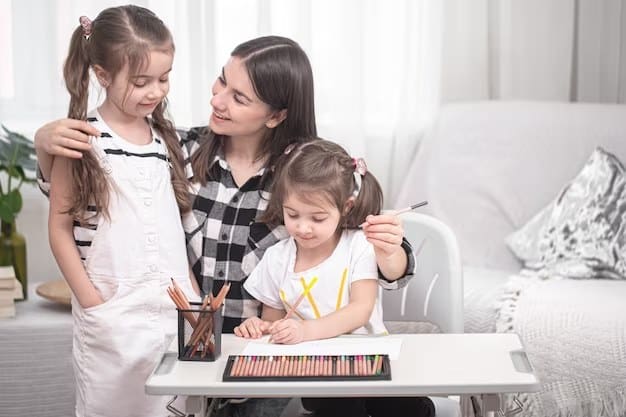
Purposefully focusing on recognizing milestones and celebrating growth is a worthwhile endeavor that fuels young children’s learning and development.
Infant Milestones (0-12 months)
Physical Milestones
In the first year of life, infants make considerable advances in mobility, moving from entirely dependent newborns to crawling, cruising, and some even walking. Fine motor skills also improve dramatically, from the infant’s first grasps and reaches to self-feeding finger foods.
Celebration ideas:
Decorate with photos of the baby’s progress. Create a simple baby obstacle course to practice emerging physical skills. Sing songs and cheer them on as they gain new abilities.
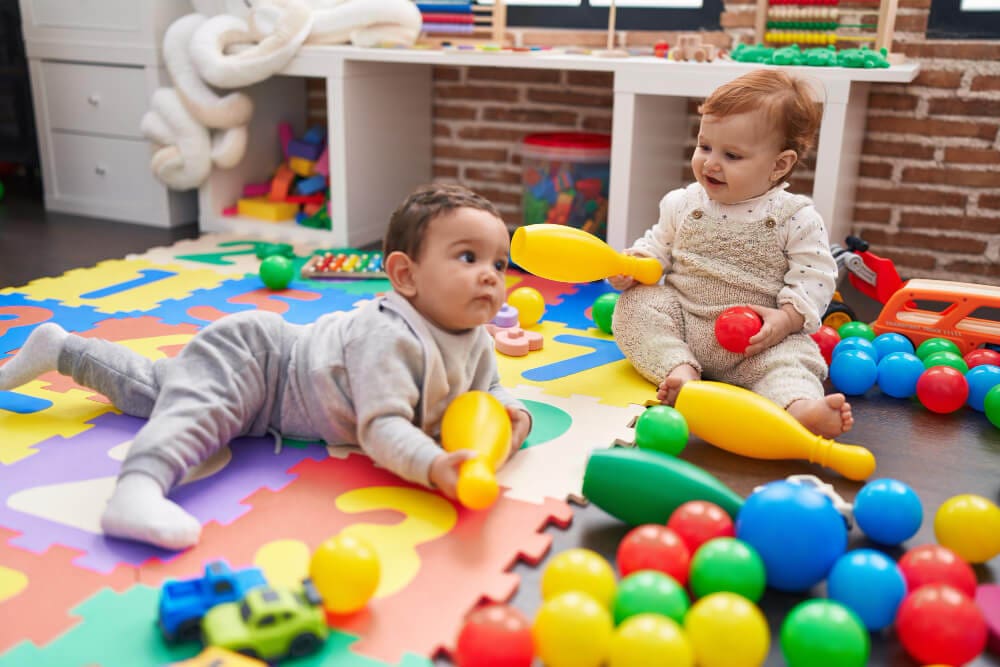
Social & Emotional Milestones
Equally important in a baby’s first year are social-emotional developments like bonding, showing preferences, separation anxiety, and early communication of needs. Laughing, pointing, waving – these are all signs of social-emotional growth.
Celebration ideas:
For first smiles/laughs, do circle time with silly songs and faces. Note “preferred friends” and facilitate more interactions. Comfort anxious infants and assure them they are safe.
Cognitive Milestones
So much learning happens this first year! Baby’s budding cognition enables them to understand object permanence, cause & effect, their name, “no,” and later gestures like waving and pointing.
Celebration ideas:
Play peek-a-boo for object permanence. Clap and cheer for the baby’s new knowledge and tricks.
Toddler Milestones (1-3 years)
Physical Milestones
The second and third years see toddlers on the move! They gain stability and coordination to walk, run, jump, kick a ball, scribble, feed themselves, and start potty training.
Celebration ideas:
Have indoor movement activities like an obstacle course—and display art projects. Assist with self-care skills like handwashing and dressing.
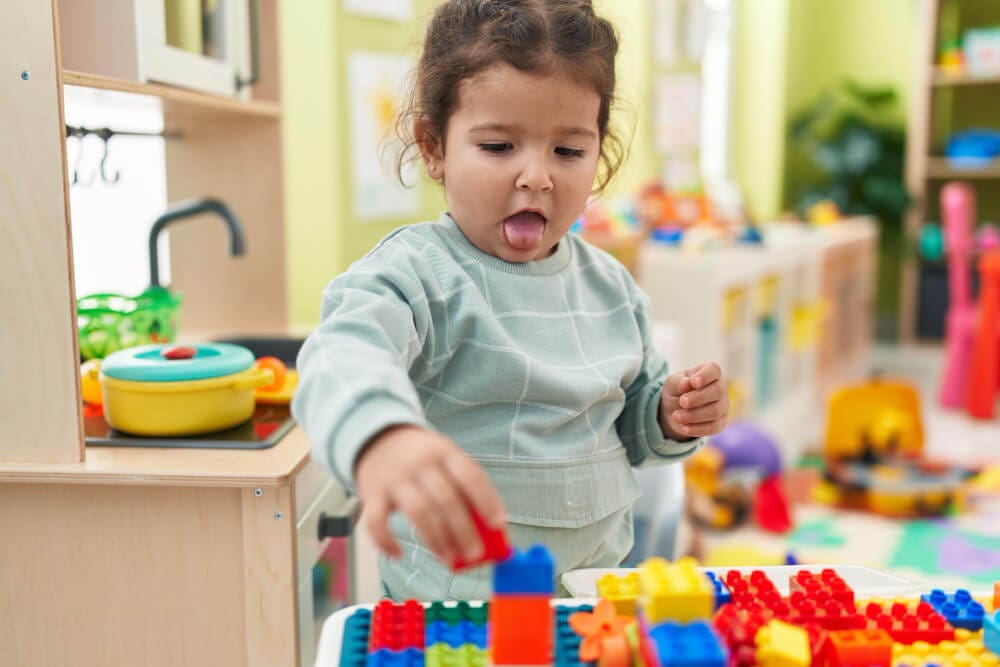
Social & Emotional Milestones
Toddlers begin interacting more with peers in addition to caregivers. They assert independence, and experience continued separation anxiety. Simple pretend play emerges, along with empathy, turn-taking, and ownership over possessions.
Celebration ideas:
Organize play dates and small group activities to nurture peer interactions. Allow choices when possible. Role model sharing through turn-taking games.
Cognitive Milestones
This period features an explosion of language, learning shapes, and colors, counting to ten, naming familiar things in a book, recalling events, and following 2-3 step directions. Imagination sprouts through pretend play.
Celebration ideas:
Verbally engage children in activities. Display cognitive growth on a wall with shapes, numbers, and photos. Act out stories and imagination-based games.
Preschooler Milestones (3-5 years)
Physical Milestones
Preschoolers gain fine motor precision to independently control drawing, cutting, dressing, and toilet. Strength and coordination develop to use playground equipment safely to hop, swing, catch, and throw ball safely.
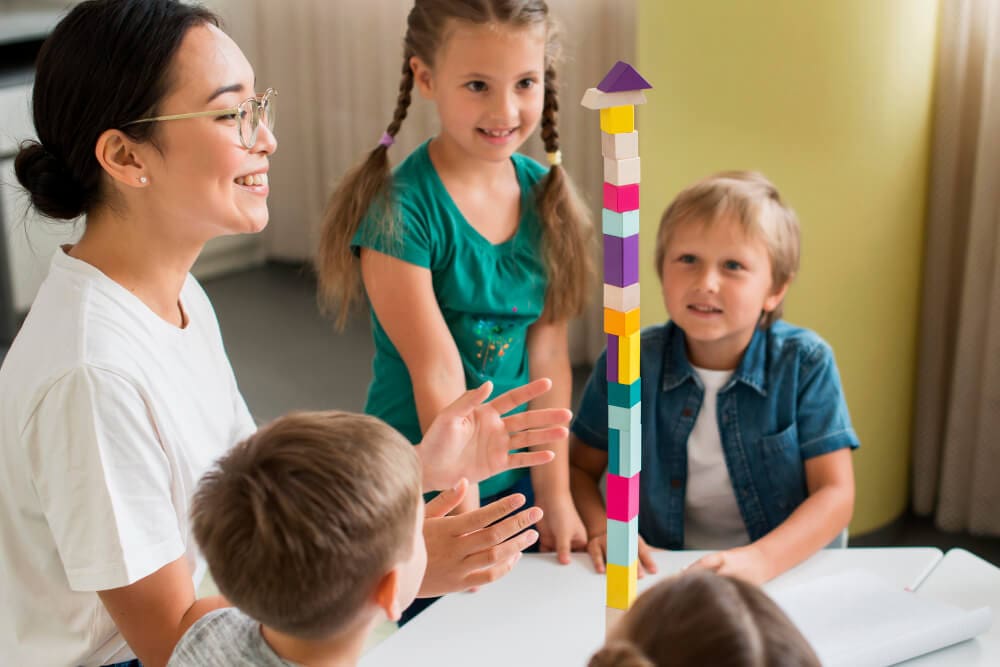
Celebration ideas:
Allow free art exploration with various media like paint, playdough, and crayons. Create obstacle courses focused on skills like jumping, kicking, and throwing.
Social & Emotional Milestones
Preschoolers cooperatively play in groups of friends. Complex pretend play emerges with intricate storylines and role play. They have rich emotional lives and are developing self-regulation. Many experiences dramatic play and a sense of humor.
Celebration ideas:
Dramatize children’s stories and ideas. Display a visual timeline of cooperative creations. Label feelings and support emotional regulation. Foster friendships through paired/grouped activities.
Cognitive Milestones
Significant cognitive advancements are made in understanding symbolic functions – letters, numbers, and drawing representations. They can count to ten (or twenty), start recognizing sight words, understand detailed narratives and events, and follow multi-step directions. Memory improves to recall long past events in order. Advanced problem-solving skills develop.
Celebration ideas:
Spotlight literacy knowledge on the wall, share sight words and name writing, and support through language-rich activity centers. Discuss learning themes, dictate stories, and track concepts of time. Engage in “what would you do if…?” scenarios.
Conclusion
Tracking childhood milestones and celebrating children’s achievements along their unique developmental journey should be integral to early childhood education. It informs our understanding of children’s skills and abilities, guiding our educational support efforts.
Milestones provide insights into emerging capabilities across key domains as children play, explore, and make sense of their world. Purposeful recognition motivates young learners to progress while fueling their self-confidence and identity formation. Celebrating each child’s milestones, however small, conveys that we value their developmental strides toward reaching their full human potential.
Children's Corner Learning Center
At Children’s Corner Yorktown Heights Preschool and Daycare , we understand the importance of celebrating every child development milestones. From taking their first steps to mastering the alphabet, we believe in recognizing and encouraging each accomplishment, no matter how small. Our dedicated team of educators is committed to creating a nurturing environment that fosters growth and learning at every stage.
If you’re looking for a place where your child can thrive and reach their full potential, look no further than Children’s Corner Daycare Yorktown Heights NY. Contact us today to schedule a tour and learn more about our comprehensive programs tailored to support your child’s unique needs and developmental milestones.
Invest in your child’s future and give them the best start in life. Call us at 914-340-0771 or visit us to enroll your little one today. Let’s celebrate their milestones together!
frequently asked questions
Why is tracking milestones important?
What if my child isn't reaching the milestones?
How should milestones be celebrated at home?
Do all children learn at the same pace?
Absolutely not, each child follows distinct paths with differing timetables. Child development appears rapidly uneven – some domains excel while others lag until catching up. Meet children where they are developmentally, then encourage steady forward progress, celebrating both small incremental gains and those developmental leaps.
Is there any universal Pre K Westchester NY?
Universal full-day pre-K is not yet available across all of Westchester County, but many free and low-cost options exist, especially for qualifying families:
Many public school districts, including White Plains, New Rochelle, Mount Vernon, Ossining, and Peekskill, offer free, full-day pre-K programs. Eligibility is typically based on factors like:
- Income level
- Homelessness status
- Foster care status
Head Start and Early Head Start programs through organizations like WestCOP also provide free or affordable pre-K for families who meet certain requirements.
There are many private preschool and daycare centers in Westchester that offer pre-K, some of which provide financial assistance.
So while not universally accessible yet, Westchester families have a number of options for free or subsidized full-day pre-K for 4-year-olds through public school districts, Head Start, and some private providers. Checking specific eligibility requirements is recommended to find the most affordable program for your child.
What are some cognitive milestones for 2-3 years old?
Cognitive advancements from ages 2-3 years include
- Understanding symbols represents real things.
- Sorting objects by color/shape/size.
- Ordering items by size.
- Counting to ten.
- Recognizing numerals or letters.
- Naming colors correctly.
- Following 2-3 step directions.
- Identifying familiar things when named.
- Noticing detailed differences between objects after close observation.
- Participating in pretend play with simple substitution like using a box for an imagined car.
